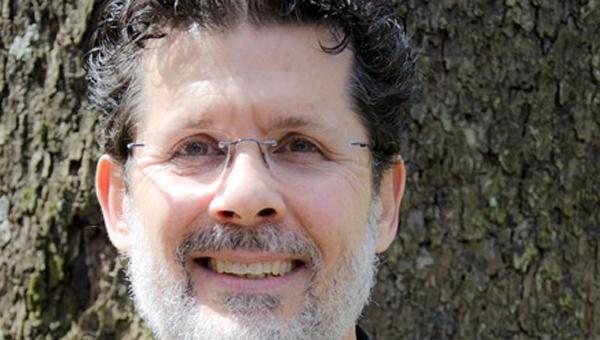Hestevold grew up in Nashville, Tennessee. He later received his doctorate from Brown University in Providence, Rhode Island. While working on his doctorate, he made money at night doing magic tricks at bars and wrote his thesis during the day.
He said he never thought he’d want to come back to the South at all, much less the deep South of Tuscaloosa. Fortunately, he was pleasantly surprised by the supportive community of scholars in the philosophy department at The University of Alabama.
At one point he looked around for different job opportunities, but nothing compared to what he already had here at the University. He has enjoyed it so much, he is around after 36 years.
He said the town has grown culturally and the University has grown intellectually over the years. He plans on staying at The University of Alabama as long as he is physically and cognitively healthy and finds his writing and teaching rewarding.
After finishing his third year of graduate school, he taught ethics to prisoners, some of whom would never grasp the concept of right and wrong. He also taught logic to judges for an intense five day seminar. He found a lot of similarities between judges and philosophers and understood why a judge’s occupation would be rewarding and stimulating. Judges affect people’s lives, and he said he has great respect for that.
He said he was lucky to study iden tity of objects and persons with Roderick Chisholm, one of the leading metaphysicians of the time. Hestevold found the problem’s complexity and relevance engaging. Since he has been at the University, he has educated himself on how problems of identity relate to problems of the nature of time.
His research and interests primarily stem from analytic metaphysics and moral psychology, but he said those are independent problems.
“Stimulating conversations with Norvin Richards led to my interest in problems involving moral psychology – the nature of mercy, the nature of pity and the nature of compassion – and so I began working in that area briefly,” Hestevold said. “I keep returning to metaphysics. I think that’s my first love.”
Hestevold said he is currently most interested in studying the nature of space. The responsibilities of being the chair of the department have taken away time from writing papers on the subject.
Julie Wilson, administrative secretary to the philosophy department, said they are on course for full time tenure track faculty to increase by about 30 to 35 percent by fall 2015. Hestevold has also worked with other faculty to greatly increase the size of the pool of majors.
“We laugh a lot,” Wilson said. “Having a chair like that sets the tone for the department. It’s a department who has a great deal of respect for each other. We are fortunate enough to have four full time temporary instructors. They are treated with as much respect and courtesy as the tenure track faculty are. It’s a very egalitarian department.”
Hestevold stressed the importance that Dean Robert Olin has had on the philosophy department.
“Having a supportive dean has made my life as chair much easier and far less frustrating than it might have been,” Hestevold said. “Dean Robert Olin thoroughly understands what philosophers do, and he has consistently encouraged both our research and classroom efforts.”
Hestevold said he enjoys working with his colleagues.
“We now have a vibrant department of young philosophers,” Hestevold said. “[We have] a collegial, supportive community of scholars. Each and every one here, eight of us tenure track core instructors, everybody takes their teaching and research both quite seriously. It’s a uniformly strong department. It’s a wonderful place to work. I consider it an honor to serve as chair for these people.”
Norvin Richards, the former philosophy department chair, said Hestevold has taught Ethics, Intro to Philosophy, Logic, medical Ethics, Metaphysics, Philosophy of Religion and History of philosophy.
“He likes to teach people who are very advanced, and he also likes to teach people who are just beginning,” Richards said. “In the course of his career, he has taught just about everything the department teaches.”
He has worked with Patrick LeClair, associate professor of physics, to team teach a class called Physics, Metaphysics, and Other Nonsense. They plan to offer it again in spring 2016.
“He knows our subject more broadly and more deeply than philosophers usually do,” Richards said.
In his teaching, Hestevold said he wants his students to be able to think critically and analyze information. He said he isn’t concerned with students memorizing, for example, different arguments for and against free will; he’s concentrating on enhancing students’ skills in reasoning and thinking in all aspects of their lives.
“What I do care about is that they leave my class with advanced critical thinking skills, such that a year from now they are able to read a newspaper editorial and evaluate the reasoning, to evaluate a politician’s speech, to evaluate an insurance sales person’s pitch,” Hestevold said. “I want them to be better thinkers than they were when they walked into my classroom. If they leave my class with enhanced analytic skills then I’ve done my job. I want them to live a reasoned life.”







